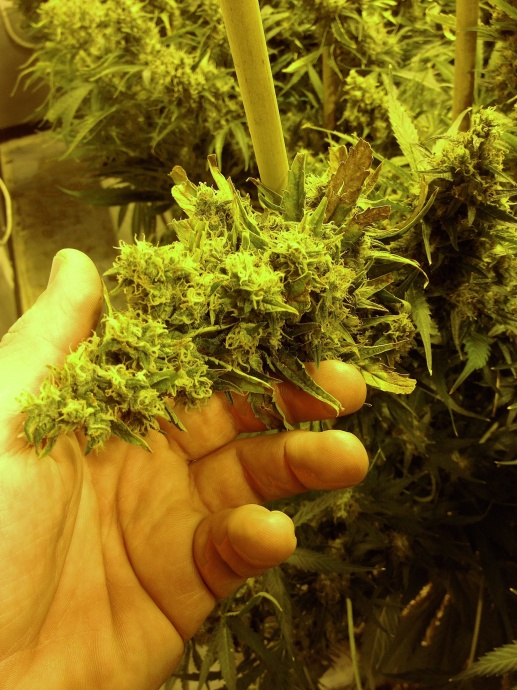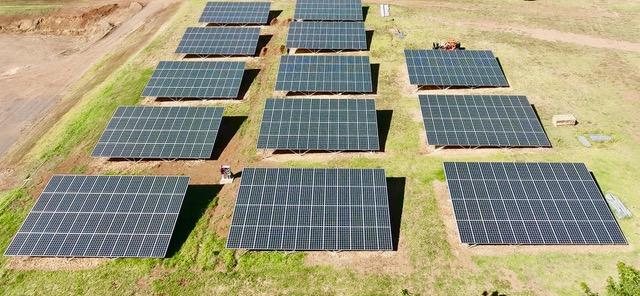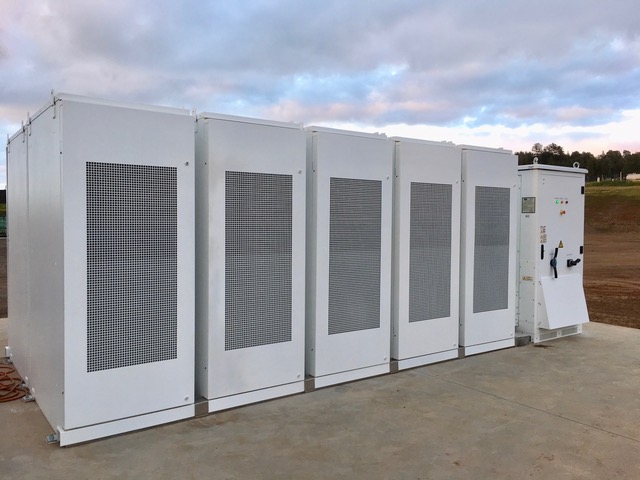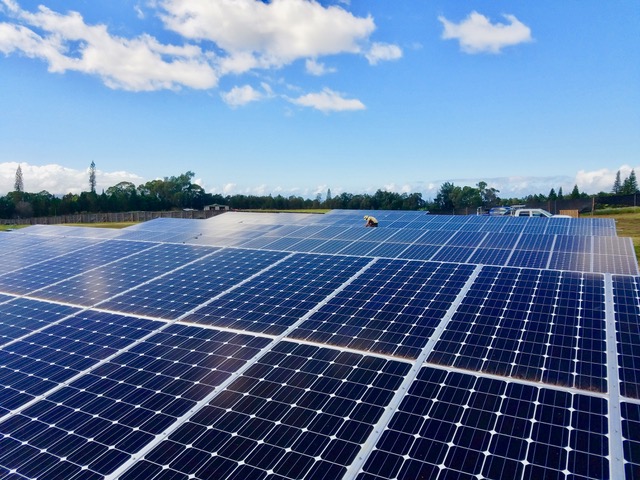Maui Dispensary Among 1st in State Approved to Acquire, Grow Marijuana
Two medical marijuana dispensaries are the first to receive approvals to acquire and grow marijuana for medical products in Hawaiʻi.
The Hawaiʻi State Department of Health Medical Marijuana Dispensary Licensing Program today issued Notices to Proceed to Acquire and Cultivate Marijuana to Maui Wellness Group, dba Maui Grown Therapies for a production site on Maui, and Aloha Green Holdings, Inc. for a production site on Oʻahu.
Maui Grown Therapies earned the state’s first medical marijuana dispensary license last April after achieving a near perfect score of 510 of a possible 520 points in a merit based evaluation process conducted by the DOH.
The Notice to Proceed allows cannabis cultivation to begin in MGT’s initial production facility.
The grow operation is powered by polycrystalline solar panels that convert photons into electricity for storage in commercial lithium ion battery stacks. The batteries can store up to one megawatt of electricity to provide firm power for cultivation chambers outfitted with energy-saving wide spectrum LED lights.
This ‘micro-grid’ system is sized to provide 100% of the electricity needed for Maui Grown Therapies’ Production Center One, the first of two production centers permitted by law. A second production center, also powered by renewable energy, will be announced later this year.
“Growing cannabis is extremely energy-intensive,” said John Bews, MGT’s Energy & Ecosystems Engineer. “Energy is typically the second highest operating expense for cannabis producers even in places like Denver, where electricity costs are over 70% lower than Maui’s costs. When you consider MECO’s average cost is over 40 cents per kilowatt hour, power from the grid would be our largest operating cost. Our phase one solar plant, which is big enough to power 650 homes, reduces energy to fraction of what we otherwise pay using MECO.”
“Our staff has been working diligently to schedule and conduct inspections on multiple islands while completing training and testing of the seed-to-sale tracking system which is critical to all dispensary processes and required by law,” said Keith R. Ridley, chief of the Office of Health Care Assurance. “Today’s milestone is a major step forward, and the state and dispensaries have worked very hard to get to this point. There’s still much more work ahead as we take all the necessary steps to ensure safe products for Hawaiʻi patients.”
Today’s Notices to Proceed issued by DOH authorize licensed medical marijuana dispensaries to acquire and grow marijuana seeds, clones and plants, for the purpose of providing marijuana and marijuana products to patients registered with the department’s Medical Marijuana Patient Registry Program.
The Medical Marijuana Dispensary Licensing Program coordinates on-site inspection schedules with dispensaries based on the dispensaries’ business timeframes. The program conducted inspections of three dispensary production centers in January. All dispensary licensees must meet statutory and regulatory requirements that include building a secure, enclosed indoor facility and inspection by and authorization from the Narcotics Enforcement Division of the Hawaiʻi State Department of Public Safety.
Another critical component of the medical marijuana cultivation process is the operation of the state’s seed-to-sale computer tracking system. DOH completed a contract with BioTrack THC last November which provides the department with 24-hour, seven days per week access to near real-time data of marijuana seed, plant and product inventory, sales, waste disposal, and other information required of dispensary licensees. All dispensaries are required by law to integrate their own product tracking system with the state’s computer system.
“The next stage of the dispensary program will include the inspection and approval of retail dispensary locations,” said Ridley. “The department will also be working to interface the state’s seed-to-sale computer tracking system with the existing patient registry system and review and certify laboratories to conduct product testing.”
There are more than 15,000 medical marijuana patients registered with DOH and dispensaries will be required to verify the identities of registered patients and caregivers before they enter a retail dispensing location. The state’s computer tracking system will trace the amounts of products registered patients and caregivers purchase through an interface with the patient registry system that is currently in development.
Other dispensaries on Oʻahu, Maui and Kauaʻi have contacted DOH and requested inspections of their production centers for this month. Dispensaries on the island of Hawaiʻi are expected to be ready for inspections later this year.
DOH’s State Laboratories Division is reviewing applications from private laboratories for state certification, and working with applicants to meet all requirements for safety and accuracy. Dispensaries will be required to meet laboratory testing standards to ensure their products meet safety guidelines. Laboratories are encouraged to submit their applications and forms are available at http://health.hawaii.gov/statelab/.
A total of eight medical marijuana dispensary licenses were issued in April 2016. Three dispensary licenses for the City and County of Honolulu were issued to Aloha Green Holdings, Inc.; Manoa Botanicals, LLC; and TCG Retro Market 1, LLC dba Cure Oʻahu. Two licenses for the County of Hawaiʻi were issued to Hawaiian Ethos, LLC and Lau Ola, LLC. Two licenses the County of Maui were issued to Maui Wellness Group, LLC and Pono Life Sciences Maui, LLC. One license for the County of Kauaʻi was issued to Green Aloha, Ltd.
Each dispensary licensee is allowed to operate two production centers and two retail sites for a total of 16 production centers and 16 retail dispensary locations statewide. Each production center can grow up to 3,000 marijuana plants.

Employees inspect marijuana plants at Green Man Cannabis growing facility in Colorado. Photo credit: Green Man Cannabis.

MGT’s Ground-mounted solar panels convert sunshine to power.

MGT Lithium Ion Battery Stacks store 1 MW of Electricity.

Polycyrstalline PF modules will power MGT’s cultivation.












